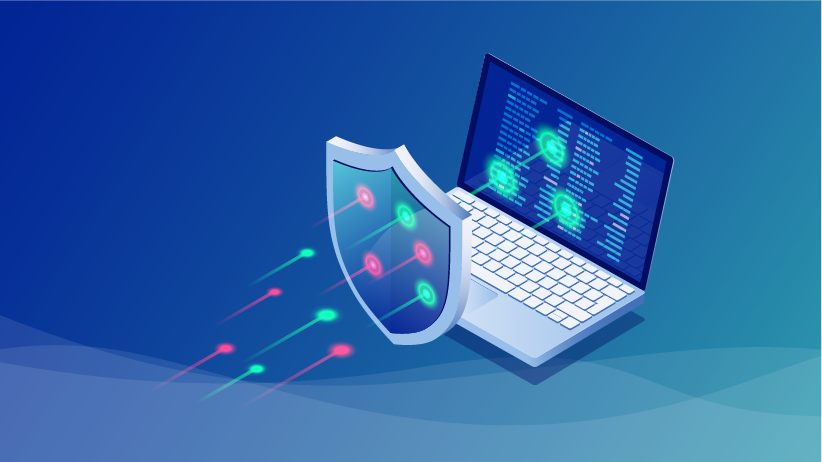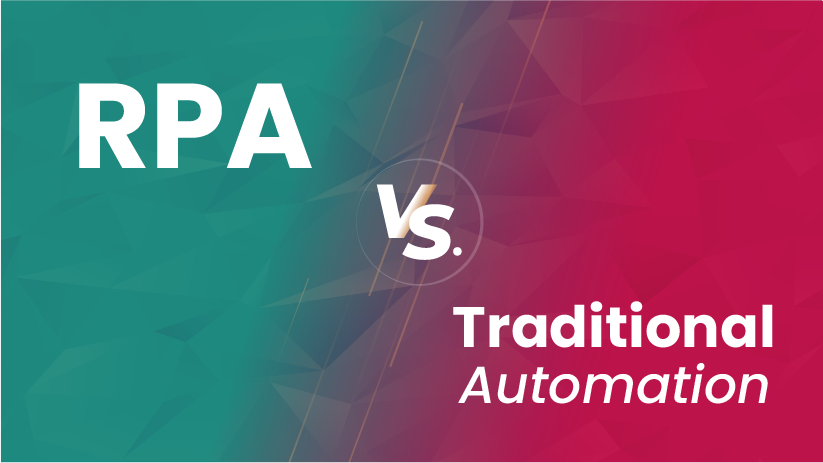Automation Cybersecurity for MSPs: 3 Best practices to protect your business

As the leaves change color and Halloween decorations start appearing, something else might be creeping up behind you—cybersecurity threats. But don’t worry; securing your MSP doesn’t have to be scary. By automating security tasks, you can fortify cybersecurity for MSPs, turning vulnerabilities into a strong defense.
This blog shows how automation improves security, reduces risks, prevents data breaches, and simplifies processes. With these cybersecurity best practices, your MSP can stay ahead of threats.
How to Prevent MSP Cybersecurity Threats
Automation is like having a flashlight that helps you see through the fog of threats lurking in the shadows. It shifts your focus from reacting to data breaches to preventing cybersecurity threats proactively. Automation filters out the noise, letting you focus on securing your MSP and protecting clients with a robust security framework.
Think of your MSP as a mansion with many rooms, each room representing a client. Automation strengthens the locks on those rooms, reducing the chances of unauthorized access going unnoticed. When automation performs processes, it clearly defines and logs tasks, helping organizations meet compliance requirements without adding extra work.
Now that you understand what automation for cybersecurity is, let’s discuss how you can leverage MSP-focused automation to prevent threats in the first place.
1. Automating security processes: Start simple, then expand
When securing your MSP, it’s best to start with flickering candles before summoning a bonfire. Begin with basic tasks, such as alert handling. These foundational steps ensure that each automation is effective and manageable, giving you confidence to expand as you go.
Once these initial operations run smoothly, you can gradually add complexity by incorporating additional security processes or tools. This layered approach strengthens your MSPs security posture over time, making your defenses more resilient and ready to tackle any lurking threats.
A key focus in the early stages should be saving time by targeting repetitive, time-consuming tasks. Automations that collect data from various tools enable your team to focus on more crucial tasks while maintaining a robust security environment. Think of it as using an enchanted broomstick to sweep away routine tasks, freeing your team to focus on what matters most.
Not all tasks are equal, though. Prioritize automating those that are both time consuming and crucial to your security operations. For example, automating data collection for security analysts leads to quicker, more informed decisions, enhancing efficiency and reducing response times to cybersecurity threats.
Consider cybersecurity automations like ticket handling and MFA(multi-factor authentication)
Automating ticket handling and MFA acts as your MSP’s watchful guardian. These automations simplify processes, cut manual work, and speed up responses. Consider “impossible travel” events, like a user logging in from New York and Tokyo minutes apart, or MFA failures that flag breaches. Collecting logs from multiple locations without automation takes hours of technician time involving tedious efforts.
A recent Workflow Wednesday session highlighted a Liongard MFA Remediation Setup Crate that automates these steps, making it easier for MSPs to manage MFA failures and unusual login attempts efficiently. This example demonstrates how automation can simplify complex tasks and save valuable time.
Automation flags suspicious activities instantly and creates tickets with key details like login history, device, and location data. This saves time and gives your team a clear view, helping security analysts quickly determine if it’s a real threat or a false alarm.
By streamlining access, automation provides the important information about an event when time is critical. It also reduces the manual labor of digging through systems. This frees your team to focus on evaluating and responding to cybersecurity threats. Automation establishes a consistent process that reliably handles every alert, from impossible travel to multi-factor authentication failures.
This consistency strengthens your security, leading to faster and more effective resolutions. Automation resolves issues faster and reduces “alert fatigue,” helping your team avoid missing important issues in the noise. Additionally, analysts benefit from the reduced burden of repetitive tasks. Minimizing minuscule tasks improves job satisfaction and allows them to focus on more critical work.
Incorporating automation into your ticket handling and MFA systems doesn’t just boost efficiency. It strengthens your defenses, keeping your MSP ready for whatever comes its way.
Streamlining Administrative Functions
Streamlining administrative tasks with automation is key to protecting your MSP from human error and unauthorized actions. Automation acts like a silent guard. It consistently performs tasks and reduces the risk of mistakes that could lead to security breaches.
Even experienced techs make mistakes. Automation minimizes that risk by standardizing tasks—ensuring they perform the same way every time. Automation also restricts unauthorized actions by putting processes “on rails,” giving users access only to what they need. Cybersecurity best practices rely on securely executing each task. It’s like giving each person the right key to the right door, keeping sensitive areas securely locked.
Automation further boosts consistency and accountability. Automation logs every action and makes it easily traceable, providing invaluable support during security audits or investigations. Single-purpose automations, such as password resets and access rights management, are highly effective in reducing risks. These automations are simple to set up and require little oversight. They provide secure, repeatable solutions that keep your MSP running smoothly and safely.
2. Leverage pre-built automations and custom integrations
Embracing automation is one of the most powerful things you can do to improve security for your MSP and clients. Whether using pre-built automations or custom integrations, you can significantly enhance your cybersecurity posture by streamlining processes and reducing manual errors. Let’s explore how each of these automation options can strengthen your defenses.
Pre-Built Automations (Crates): Ready-to-Use Solutions
You can leverage pre-built automations, or Crates, to solve common MSP challenges easily and efficiently—no custom development is required. If you’re an automation pro that wants to leverage your existing code, custom integrations and escape hatches may be your preferred approach. We’ll cover those tailored security solutions shortly.
Crates come equipped with workflows, triggers, and forms that MSPs can customize to fit their needs. By automating time-consuming and error-prone tasks, you can focus on what matters most: keeping your clients’ systems secure. Here are a few examples of Crates that improve MSP security:
- Just in Time Admin Access: This automation grants and deactivates admin access for Active Directory accounts based on specific conditions, thereby reducing the risk of unauthorized access and minimizing attack surfaces. MSPs maintain tight control over administrative actions, securing both internal and client environments.
- Triage SentinelOne Tickets: This Crate automates matching SentinelOne alerts with the correct company in ConnectWise PSA, speeding up response times and streamlining incident tracking. By automating ticket creation, MSPs ensure they don’t miss critical alerts, allowing faster, more accurate threat management.
- Change a User’s Password: Automating password resets through a form-driven interface ensures secure and efficient password changes without having to provide access to additional systems. MSPs can enforce stricter password policies, reducing human error and creating a documented audit trail for compliance.
Custom integrations & escape hatches: Tailored security solutions
While pre-built automations streamline standard tasks, custom integrations and escape hatches allow MSPs to design solutions that fit their unique tools and workflows. These tailored automations enhance security and efficiency by seamlessly connecting with key tools like SentinelOne, Webroot, DNSFilter, Liongard, Sophos, and SaaS Alerts.
Custom integrations offer flexibility beyond the tools mentioned above, supporting a wide range of APIs to ensure compatibility with legacy and modern systems. For example, Microtime utilized a custom integration with Rewst to automate BitLocker key documentation, enhancing security through precise and consistent record-keeping. This automation saved security engineers 5 hours per month, freeing them to focus on higher-priority tasks.
Meanwhile, escape hatches like webhooks and HTTP requests enable seamless integration of automation with your existing custom code, providing the control to complete tasks without the security risks associated with manual maintenance. This level of adaptability gives MSPs control over everyday processes, access, and visibility, allowing them to automate security as their organization grows and evolves. You build a more resilient and efficient security framework tailored to your specific needs when you leverage custom automats for critical cybersecurity functions.
3. Choose the right approach
Deciding between pre-built automations and custom code or integrations depends on your MSP’s specific needs. Pre-built automations offer a fast, straightforward way to handle common tasks. These ready-made solutions can quickly streamline day-to-day operations, like ticket handling or password resets, making them perfect for solving typical problems without much effort.
When specific tools or workflows are necessary, custom solutions allow you to build tailored results that meet your MSP’s or customers’ unique needs. Adapting automations to these requirements is essential for maximizing both efficiency and security. Custom solutions ensure workflows fit seamlessly into your systems, reducing manual work and keeping everything running smoothly.
Pre-built Crates offer quick and effective solutions that cover a wide range of business cases, making them a great option for many MSPs. However, some MSPs may want to use these Crates as inspiration or build their own custom automations to address their specific processes and requirements. By combining pre-built and custom automations, you create a flexible system that strengthens your MSP’s defenses, ensuring it is prepared for any unique challenges.
Lock down your MSP’s defenses this cybersecurity awareness month
As the shadows of cybersecurity threats linger, you don’t have to face them unprepared. October is Cybersecurity Awareness Month, so it’s the perfect time to strengthen your defenses. Automation is your vigilant guardian, helping you enhance security, reduce risks, and manage critical tasks that protect your MSP.
Whether starting with pre-built automations or crafting custom workflows, the right approach ensures your defenses stay sharp and ready for whatever may come. Take this month as an opportunity to lock down your systems and guard against unseen dangers lurking around the corner.
Latest Blog Posts
Subscribe to Our Blog
Stay up to date with the latest on our platform, automation, events and news.
We're committed to your privacy. Rewst uses the information you provide to us to contact you about our relevant content, products, and services. You may unsubscribe from these communications at any time.








